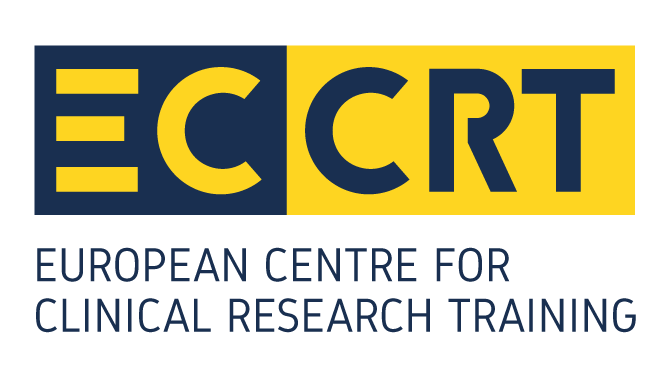
How much of a lawyer should a Contract Manager be (if at all)?
CTA negotiations can be a hurdle for trial initiation
The amount of clinical trial agreements (CTAs) that a “contract manager” or a “project manager” (or any other name used within a company to identify a non-legally trained person in charge of the coordination of CTA negotiation and implementation) must handle for one single clinical study is generally very demanding, to say the least. Statistics show that the lack of timely signature of crucial CTAs (with clinical sites or other relevant clinical service providers) is often (rightly or wrongly) perceived as an important reason why the initiation of clinical studies is challenged or delayed. This also
explains why contract managers (and their supervising legal departments that generally need to vet CTAs prior to approval) always work under pressure and constantly need to fight the perception that they are slowing down innovation.
Challenges for legal departments
Legal departments of pharma, biotech or medical devices companies (Sponsors), or of CROs, are therefore (or better: should be) continuously looking for ways to improve the timely review and signature of CTAs by their contract managers. To achieve this goal, few legal departments of Sponsors or CROs have purposely decided to grant a carte blanche to their (non-legally trained) contract managers to negotiate and approve CTAs without legal intervention, based on the conviction (or hope) that even badly negotiated CTAs rarely lead to discussions or (worse)
damages claims and (even worse) litigation. Other (i.e., most) legal departments are however looking for ways to grant their contract managers sufficient independence to negotiate CTAs while maintaining adequate control to detect blatant anomalies prior to the signature of CTAs. There
are, generally and roughly speaking, three ways legal departments can improve CTA negotiations whilst remaining involved.
Stick to the template
Legal departments of Sponsors generally invest sound efforts in preparing (balanced or unbalanced) CTA templates that their contract managers should use for CTA negotiations. To alleviate the workload of these legal departments (and avoid potential delays due to their involvement in a CTA legal review), contract managers are often asked to
- always push for the use of these templates; and to
- never accept any deviations to these templates (except for their usual commercial and logistic terms, which are often set forth in schedules).
Although this ‘stubborn” approach might be regarded as efficient for certain CTAs with some clinical sites and other service providers, most sophisticated counterparts will currently generally provide a push-back to this approach (either by claiming the use of their own template or providing a heavy “redline” on the proposed CTA). This will often lead to contract managers being stuck in a catch-22 and legal departments being unable to timely address such deadlock situations due to their heavy workload on other assignments.
Use negotiation guidelines

One way to address the aforesaid deadlock situation is to provide contract managers with a clear playbook on how to negotiate a push-back on available templates. A good playbook generally provides various fallback
positions for CTA clauses that are often challenged (such as provisions concerning IP, publications, confidentiality, liability & indemnifications or the contractual standards of performance for clinical studies). This approach has proven to optimize the negotiation timelines of CTAs (mainly because they provide a good way to avoid reaching out to legal departments whenever a proper
pushback is done on certain contractual terms). Playbooks will however only work efficiently if they are self-explanatory and provide sufficient guidance to the contract managers for understanding why certain clauses are problematic and why certain fallback options would provide a sound alternative to unlock negotiations (as “understanding” is the key prerequisite to enable constructive negotiations). This has lead some legal departments to conclude that the only way to solve the never-ending workload of incoming CTA reviews (and the perception that they are slowing down the initiation of clinical studies) is to adequately train contract managers:
- to understand legal issues whenever they pop up and
- to be able to negotiate creatively and independently more complicated contractual terms without reverting to the legal department.
No need to say that this conclusion has appeared to be very challenging to put in practice.
The contract manager as a self-made lawyer
Contract managers are (generally) not lawyers and it is needless to say that training contract managers to be “more of a lawyer” has its obvious limits. A sound training of contract managers should preferably start with an introduction that should not shun the very basic principles of contracting (why contracts are needed, why contracts are long, how contracts work and are structured). For many contract managers, such training will be regarded as utterly redundant (and criticized as a loss of time), but it has nevertheless appeared that the presence of such very basic training has given some contract managers basic insights on contracting that they lacked previously. Trainings for contract managers should also include a thorough education on the contractual clauses of CTAs that are not strictly related to clinical studies but often lead to discussions. It was noted that the absence of a good understanding of the rationale for these clauses often lead to negotiation deadlocks (even with a good playbook) and a resulting bottleneck at legal departments. These provisions include changes to the indemnifications and liabilities clause, discussions on IP, confidentiality and publication rights, the setting-up of adequate standards of performance (e.g. best efforts, commercially reasonable efforts), applicable law. A better understanding on these clauses can be reached through a more traditional training, but recurring (e.g. monthly) meetings between contract managers (preferably in the presence of one lawyer) where past experiences are shared have also proven to be a very sound tool to improving the overall understanding of these clauses. Playbooks are handy, but without said understanding contract managers will lack the creativity needed to agree e.g. on proper indemnification or liability language, or settle on an adequate liability cap (or negotiate exclusions on these caps).
If legal departments want to diminish the workload of incoming CTA reviews they could, in sum, emancipate their contract managers to ensure that they can relatively independently negotiate CTA and only revert to the legal department in limited cases. Legal departments can (and often) do so by drafting extensive negotiation playbooks. It has however appeared that good playbooks only work when contract managers are adequately and continuously trained to understand the clauses that they are negotiating. Of course, the purpose is not to make lawyers from contract managers, but
statistics have proven that the negotiation timeliness of CTAs have dramatically decreased when contract managers are continually trained to understand the clauses that they negotiate and their various fallback positions.
Learn more about this topic during our Legal Basics for Clinical Study Contracts course!
11/09/18 by Olivier Van Obberghen
